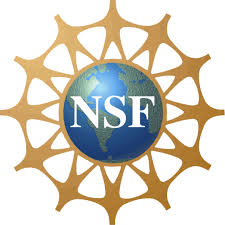
NSF Award 1631776

 |
UCR
NICE: NRT Integrated Computational Entomology NSF Award 1631776 |
 |
Our Overarching Motivation
The history of humankind is intimately connected to insects. Insect borne diseases kill millions of people and destroy tens of billions of dollars worth of crops annually. At the same time beneficial insects pollinate the majority of crop species that we eat. Given the importance of insects in human affairs, it is surprising that computer science has not had a larger impact in entomology. We believe that recent advances in sensor technology will change this, and a new field of Computational Entomology will emerge. We hope to assist in the transition of entomology from a data-poor to a data-rich computational science and produce actionable knowledge that will improve lives.
Our Mission Statement
The NRT for Integrated Computational Entomology (NICE) integrates expertise from computer science and the life sciences to train the next generation of researchers to develop breakthrough capabilities to understand and (at least in some cases) control insects.
About the Program
Have Questions? Read the FAQNICE is a five year program that will establish a formal training and research paradigm for a new generation of scholars grounded in both entomology and computer science, disciplines unable to address these critical issues alone, but powerful in combination. Entomology students will gain understanding of computer science and statistics for data mining, Geographic Information Systems (GIS), and databases. Computer Science and Engineering students will learn insect and host biology, experiment design, and modeling of natural phenomena, as well as gain an appreciation for entomological theory and methods. These NICE trainees will be pioneers, with the cross-disciplinary capabilities needed to solve complex insect-mediated problems, including those emerging alongside changes in climate, the environment, and human technologies and behavior.
The image below above shows Dr. Keogh, the PI of NICE, piloting the program in 2014 with Natalie, a biology student. Natalie's project was to understand how temperature effects the flight behavior of mosquitoes. Understanding this relationship may have implications for mosquito control. For examples of other projects that span computer science and entomology, see these papers: Flying Insect Classification with Inexpensive Sensors, Monitoring and Mining Insect Sounds in Visual Space, Classification of Live Moths Combining Texture, Color and Shape Primitives, Surveillance Methods for Monitoring House Fly Abundance etc. See also this remarkable project (that UCR is part of) to capture targeted mosquitos with drones! Other inspiring projects (from outside UCR).. Tracking Ant Social Organization (video), robotic bees (video), killing mosquitos with lasers (video),..
NICE Trainees will receive:
- An unique opportunity to work with world-class researchers in an exciting and emerging field.
- An opportunity to enhance their CV.
- Selected trainees (denoted fellows) will receive generous NSF funding for up to three years.
Apply Now! Cohort II, starting Fall 2018
We are now accepting applications for the Cohort I, who will enter the program in Fall 2018. Download this MS word file complete it and email to the address listed in the instructions. Applications received before January 19th 2018, will be given highest priority. Note that you must be a US citizen or Permanent Resident to be funded as a fellow by the NRT, however others can take part in the program (unfunded) as trainees. If you have questions, please email NICEadmin@cs.ucr.edu
Personnel
- Eamonn Keogh: Principal Investigator. Professor of Computer Science, University of California - Riverside.
- Christian Shelton: Co-Principal Investigator. Professor of Computer Science, University of California - Riverside.
- Daniel R. Jeske: Co-Principal Investigator. Professor of Statistics, University of California - Riverside.
- Jun Li: Professor of Statistics, University of California - Riverside.
- Anupama Dahanukar Co-Principal Investigator. Professor of Entomology, University of California - Riverside.
- Ring Carde: Professor of Entomology, University of California - Riverside.
- Erin Wilson Rankin Co-Principal Investigator. Professor of Entomology, University of California - Riverside.
- Alec Gerry: Professor of Entomology, University of California - Riverside.
- Amit Roy-Chowdhury: Professor of Electrical Engineering, University of California - Riverside.
Acknowledgments: Our early research in Computational Entomology was funded by Vodafone's Wireless Innovation Project, a Bill & Melinda Gates Foundation Grand Challenge Award and a UCR Chancellors Award, for which we are very grateful. We also acknowledge all those that have donated data, ideas, insects and equipment to the project.